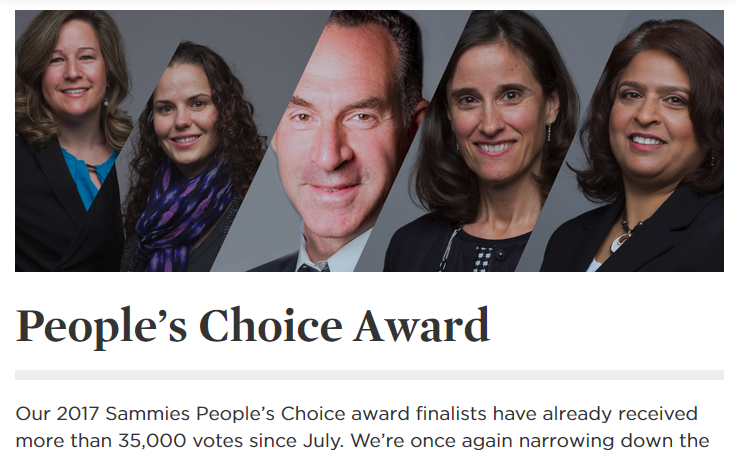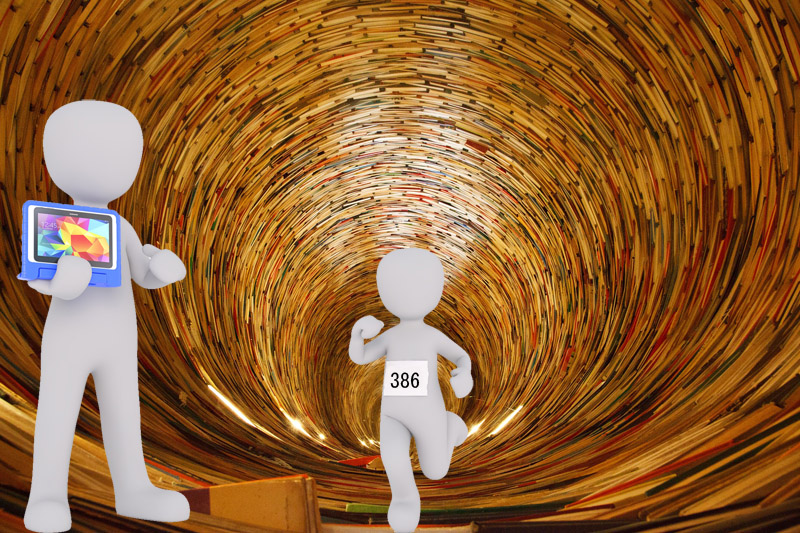In case you haven't heard, David Lipman and the GenBank team are in the running for the People's Choice Award of the Samuel J. Heyman Service to America Medals (#Sammies2017). Although Lipman and the GenBank team weren't featured in Medium.com or other news sources, they still made it to the final four.
At this point, many of you may be wondering why we're even talking about Lipman and the GenBank team on a discussion venue meant for Mark2Cure. Mark2Cure is a citizen science project that deals in biomedical literature, and doesn't involve BLAST or Lipman or GenBank, right?
But, when you think about how much of scientific progress is incremental, you begin to appreciate the impressive volume of preceding work. This is especially true if you work on a project like Mark2Cure.
Mark2Cure aims to enable citizen scientists to help mine information from the biomedical literature, which means that Mark2Cure would NOT exist if there wasn't a massive volume of preceding and ongoing work in biomedical research. We've been able to build Mark2Cure because key information infrastructure was already in place--PubMed. Lipman launched PubMed in 1997 followed by PubMed Central in 2000. Without PubMed and the subsequent tools built for utilizing PubMed, identifying abstracts and pulling them into Mark2Cure would be more difficult.

Because the Mark2Cure community consists of people who've been impacted by Lipman and the GenBank team's work, I'll spell it out here:
For members of our community who like science and like being able to read scientific articles: PubMed Central (PMC) has been a central repository for research articles that ANYONE can access and read. Thanks to NIH leadership, publications resulting from research supported by the NIH must be deposited to PMC.
For members of our community who are afflicted or know someone who is afflicted by a rare genetic disorder: GenBank has been a central repository for DNA sequences and BLAST has been an important means of searching those sequences. Without a central repository for DNA sequences, it would be a lot more difficult for researchers to map and annotate functionality associated with those sequences, to draw comparisons on protein function across the different model organisms, and most importantly, to build on each other's work. Much of what we know (or will know) about rare disease genes or proteins comes from (or will come from) expanding on the work of researchers studying worms (or flies, mice, frogs, fish, and more) thanks to the knowledge sharing enabled by PubMed and GenBank.
For the members of our community who just like to help: Mark2Cure exists because of the sheer volume of incremental progress that is represented by the publication of biomedical research articles. Incremental progress isn't as exciting or fun to talk about as scientific 'breakthroughs', but in science a lot of incremental progress had to happen in order for these 'breakthroughs' to follow.
There is so much to sift through, and every contribution from our citizen scientists unlocks a bit more information buried in the text. The Mark2Cure dream is that in unlocking information from the text, you will be able to help with 'breakthroughs' in disease research.
Although I've been rambling about the importance of Lipman and the GenBank team's work to modern biomedical research, Mark2Cure would be nothing without the community of citizen scientists that contribute to it. In no way should this discussion of Lipman and team detract from this fact.



